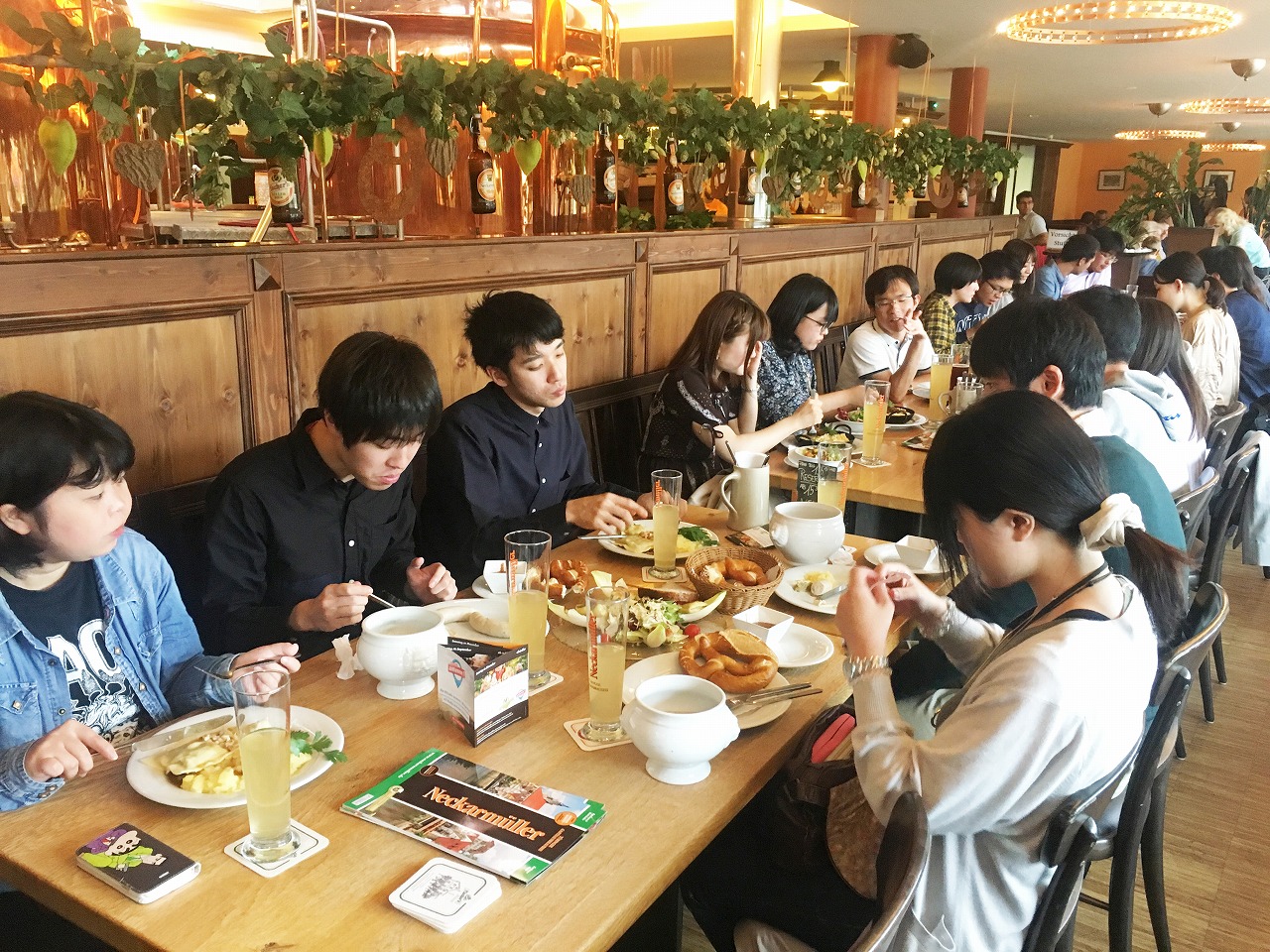

Since its inception Doshisha Law School has entered into academic cooperation agreements with Duke Law School, the University of Wisconsin Law School, the University of California Hastings College of the Law, Michigan State University College of Law, and Straus Institute for Dispute Resolution at Pepperdine Law School in California in the United States, the University of Tübingen Faculty of Law in Germany and, Konkuk University Law School in Korea. Through these and other arrangements, Doshisha and our partner law schools conduct joint research and educational projects. Doshisha is also hosting summer programs for both Michigan State University and the University of Tübingen, providing foreign students opportunities to learn about Japanese law and interact with our faculty and students.

Through its academic relationships Doshisha is able to offer its students and graduates opportunities to learn about foreign law as well as foreign perspectives on Japanese law. There are also opportunities to pursue foreign graduate degrees and legal qualifications through scholarships offered by some partner institutions, as well as our dual degree program with the Michigan State University College of Law.
Training legal professionals with an international focus is a core aspect of our educational philosophy. So Doshisha is always looking for opportunities to deepen existing ties and develop new programs with additional partner schools and institutions around the world.
Report on Joint Study Tour Program “Foreign Law Practicum (Europe)”of Doshisha and Kyoto University Law Schools 2018
The study tour took place for the 11th time (since 2007) from 29 August (Dept. Kansai Airport) to 14 September 2018 (scheduled arrival in Kansai airport. Due to typhoon damages at the airport, return flight had to be rescheduled to Tokyo. The group returned to Kyoto on 16 September by Shinkansen)
Responsible organiser and Leader: Prof. Dr. Hans-Peter Marutschke, Doshisha Law School
Legal Sites visited (overview):
This summer, a group of aspiring law students from Doshisha and Kyoto Law Schools travelled for approximately two weeks through Europe, passing through Germany, Luxembourg, France, Belgium, and then finally the UK. The purpose of this trip was to become acquainted with the different judicial systems of European countries on the continent with a civil law system as in Japan, and a common law system, for which the UK is representative, as well as with EU law and its relationship to national law, and international law, as it is set up by the Council of Europe and the European Court of Human Rights. Besides that we had many opportunities to visit important cultural sites and enjoy European life style, which altogether was an extremely interesting and informative study tour for all of us.
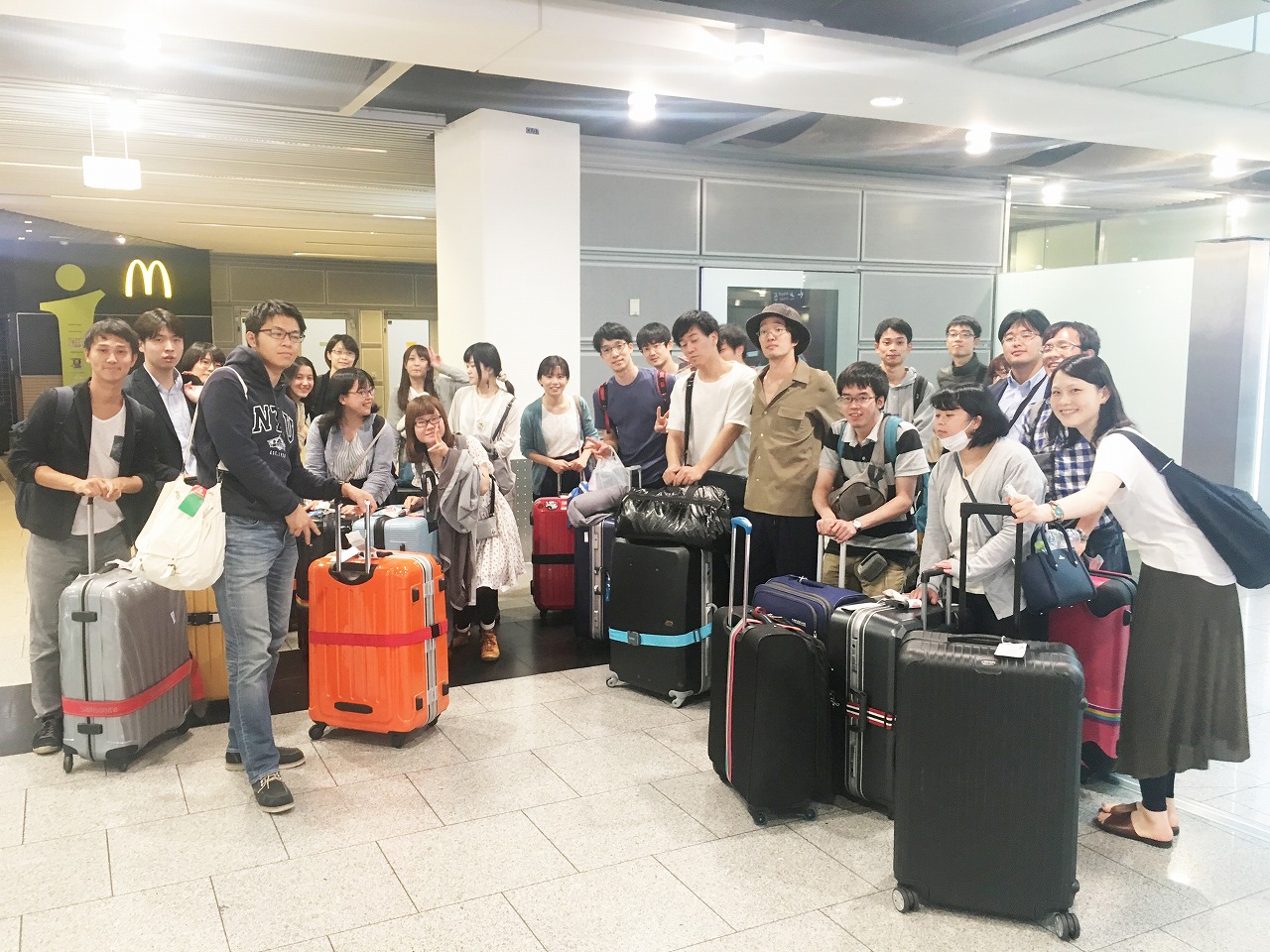
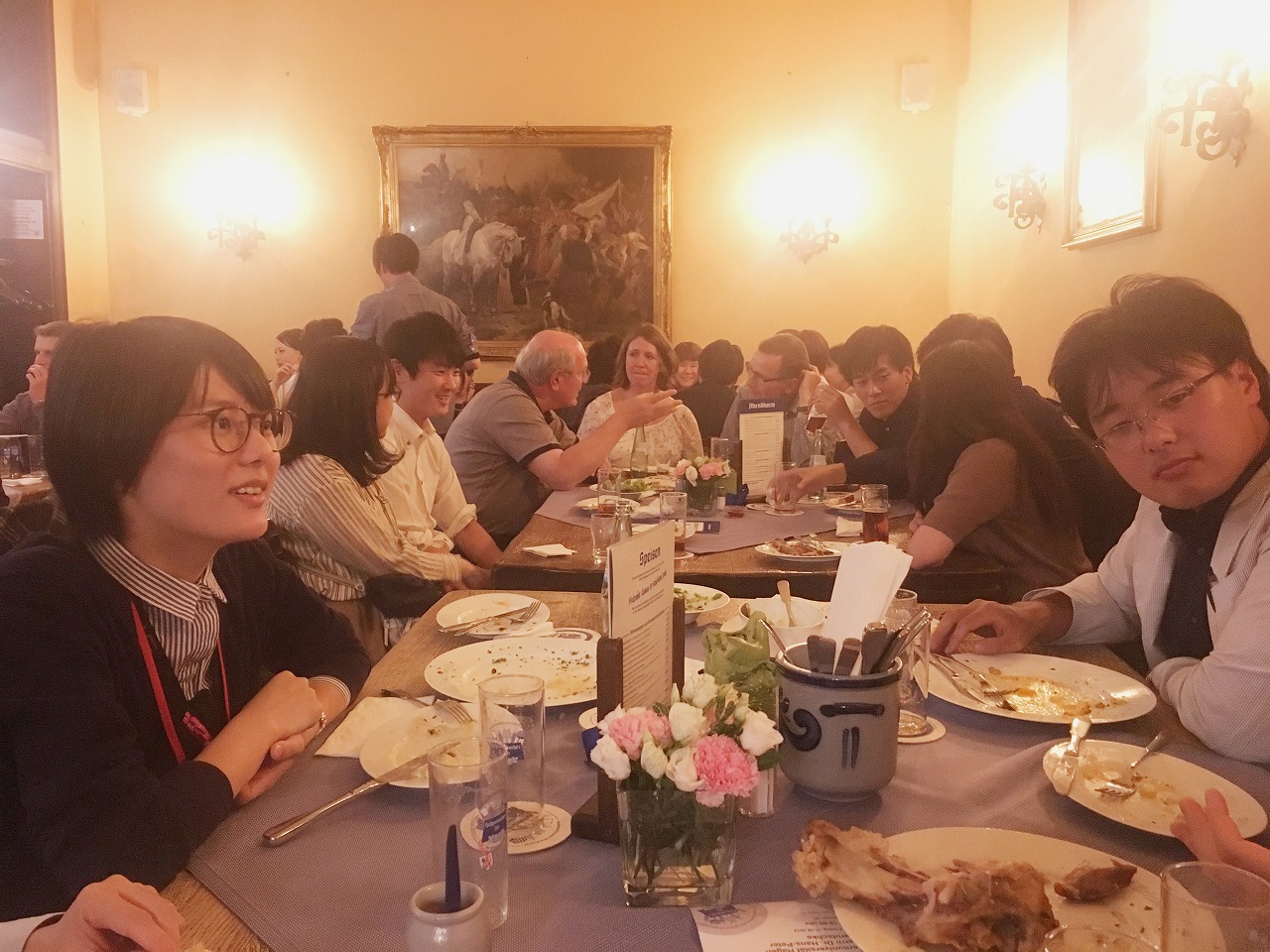
Our first destination was Düsseldorf, Germany, where we first visited the law firm of Taylor-Wessing had our first introduction to the German judicial system, organized by Dr. Pils, head of the Japan Desk there. Particularly striking was the lecture about the public notary system in Germany, which is quite different from Japan. In Germany, notaries have a key role, being both holders of public office and an independent profession. One of the main roles of a notary is ‘authentification’, which is mandatory required by Germany law for certain legal actions, for example purchase contracts on real estate, setting up or purchase a company, hold a shareholders meeting, or – voluntarily – setting up a last will and testament or other declarations of intent. Notaries also certify signatures or copies of signatures. When a contract on real estate purchase is concluded between two individuals, it is required for the notary to read out loud the entire contract, and if this is not done, the contract can be made null and void. To ensure the neutrality of the notary, the fee structure of their work is also unique.
Notaries are required to advise, instruct, and inform on both sides, even if they may have not been hired by the other party. As a whole, the job of a civil notary is distinguished and highly sought-after in Germany, showcasing the country’s fixation on procedural law.
A second lecture was held by a Germany lawyer working for the Japanese Mizuho Bank in Düsseldorf. He gave us an interesting insight in his working field, where he is mainly responsible for contract issues, especially loans etc.
Finally, we had the opportunity at an evening brunch in the law firm to mingle with other practicing lawyers and two students from Doshisha and Kyodai Law Schools, who were doing an internship there. It was very interesting inspiring to hear about their experience and some of our group now intend to do an internship there too next year.
We also visited the law firm Arqis in Düsseldorf, which is known for practicing international law, particularly specializing in Mergers and Acquisitions, but offering a so called “one stop legal service”, which means, that all legal issues related to a transaction of any kind can be treated in this law firm. Dr. Yamaguchi, partner and Head of the Japan Desk, gave us an overview and insight on his and his team’s activities. Their clients are in principle Japanese corporations trying to break into the German market through acquiring German companies or establishing a joint venture etc.. German corporate law is quite different from Japan, especially due to the fact, that most mid-size companies in Germany are organized as limited liability companies (GmbH), whereas in Japan this form was abolished by company law reform and now only stock corporations (AG) are used as company model. But also the structure of AG is quite different in both countries, due to the strong influence of the supervisory board on the management and strict regulations related to corporate governance.
Sometimes German law requires that in order to sign important contracts, the CEO of the Japanese company must go to Germany and sign it. In Japan, the CEO of the company does not often go overseas only to sign a contract, so this is apparently difficult to explain to Japanese companies. Also, German labor law is vastly different from Japanese law. For example, in Germany, paid leave and sick leave must be treated separately. Even if an employee gets sick while on paid leave, he or she may treat those days as sick leave and have additional paid leave. Punishments, pay cuts, and written apologies – while sometimes common in Japan – would be considered unacceptable in Germany, and in these ways, and many more, Japanese companies must adapt to succeed in Germany.
At Arqis we also met a student from Doshisha Law School, who did a two months internship there and gave an interesting overview on the various tasks he had to fulfill.
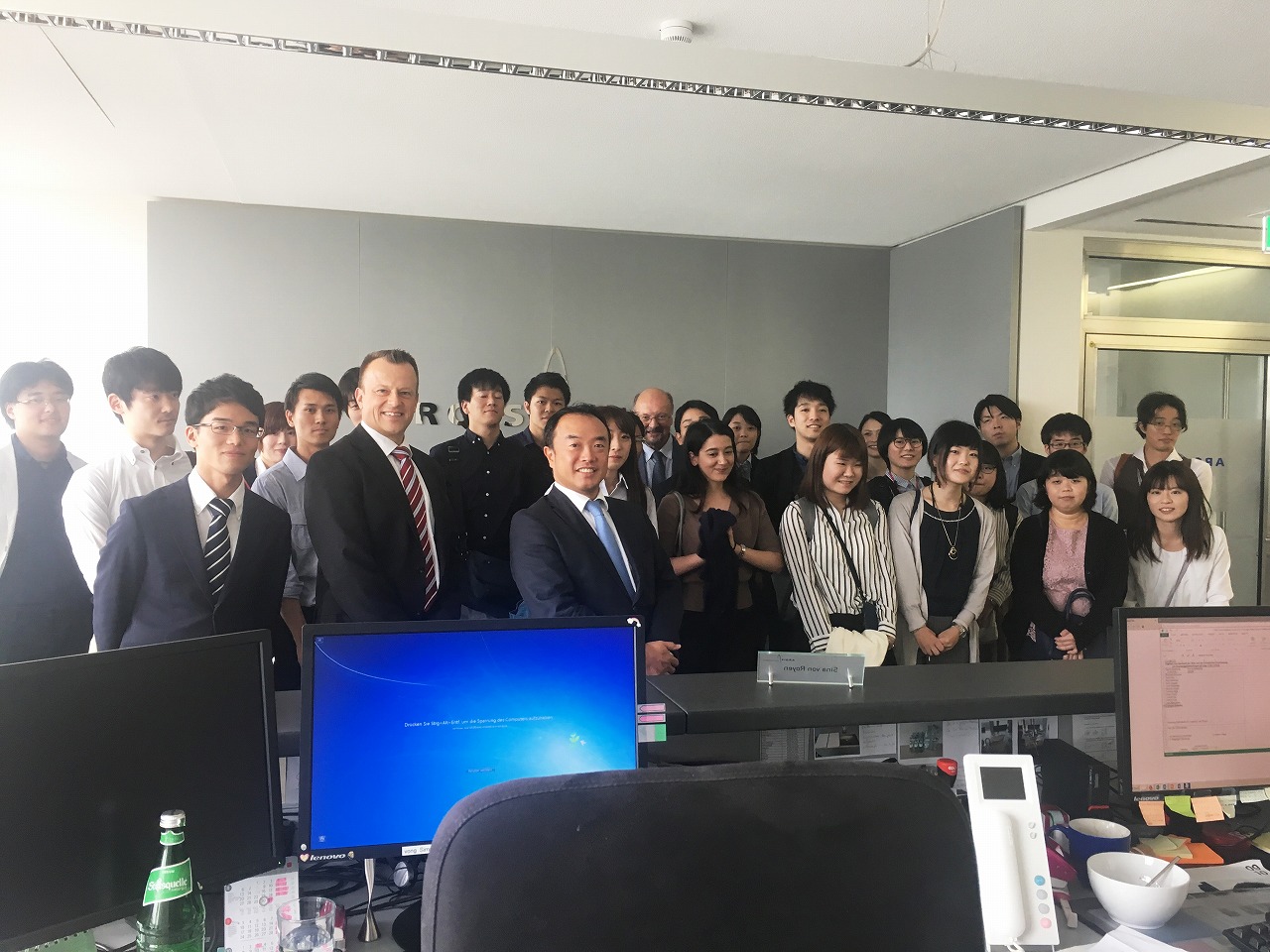
In Stuttgart, we visited the law firm Gleiss Lutz, which has also a Japan Desk with lawyers, concentrating on legal counsel for Japanese clients/companies trying to invest in or acquire European companies. Since German and Japanese quality standards and business attitude are somewhat similar, post-merger integration is often not a big deal for lawyers. Japanese corporations, unlike U.S. M&A, for example, take a ‘hands-off’ approach, and maintain local management. Because of this, many German companies feel comfortable with Japanese acquisitions.
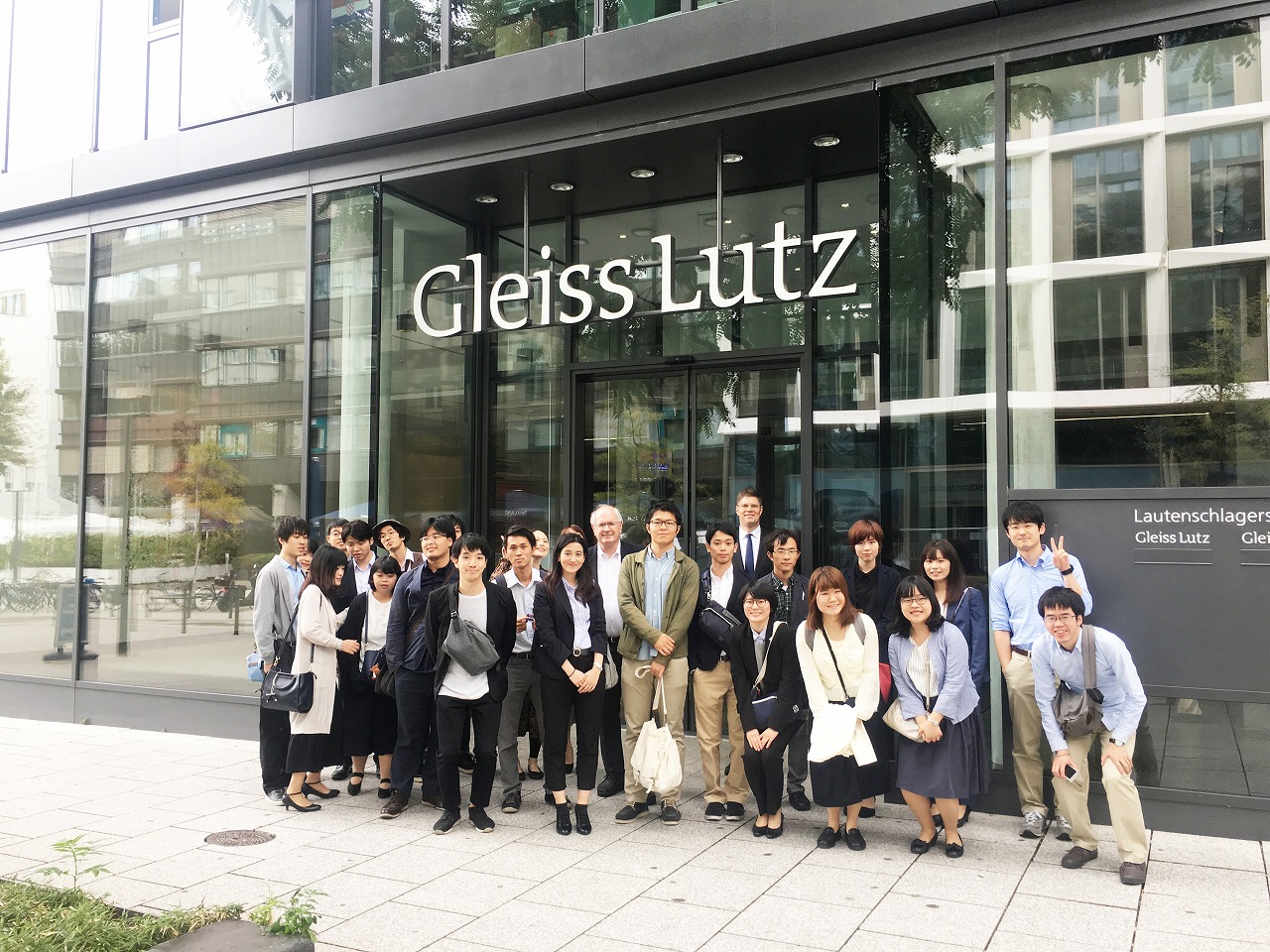
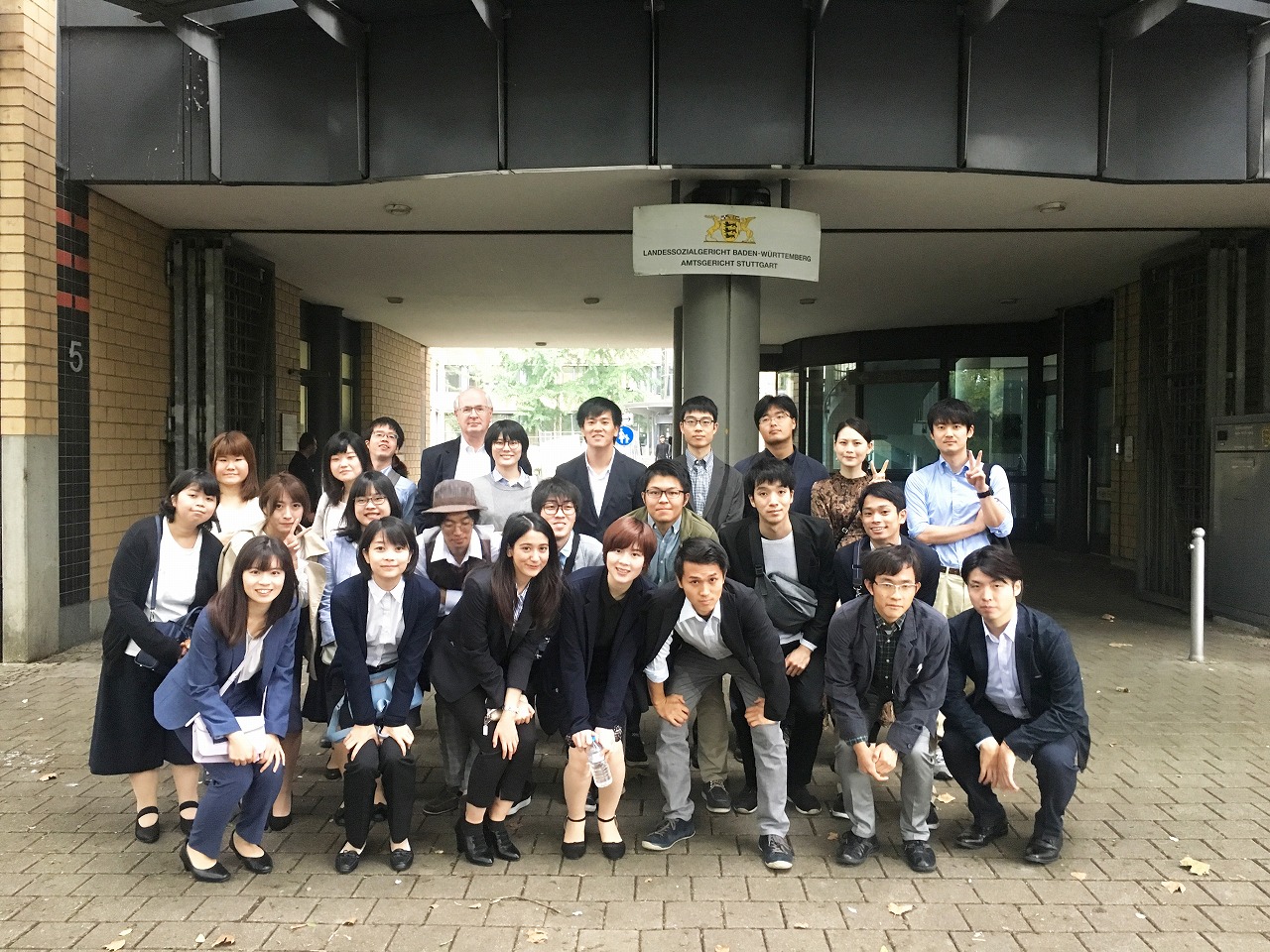
However, there are still many cultural differences that have to be overcome, particularly in negotiation styles etc. For example, German negotiators tend to be more direct, while Japanese negotiators try to approach a situation indirectly, hinting at what they want and expecting their counterparts to understand. We learned that it is also a lawyer’s job, particularly in cross-border dealings, to address these cultural differences as well. For example, in Japan a high offering price is often cited from the get-go, as a sign of good-will. However, in Germany (and many Western countries) this is seen as the starting price, and will not go down from there. Also, Japanese companies will try not to say ‘no’ directly, instead saying things such as ‘we’ll think about it’, or ‘I’ll get back to you on that’. While in Japan, this would be seen as a hard ‘no’, in other countries, this might be seen as a ‘maybe’ or even ‘yes’.
On the whole, we saw that specialized law practices will play a big part in the future. For example, Data Protection Law, especially the new EU-regulation on that issue (GDPR) is something that can and will affect not only EU countries, but the U.S. and Japan as well. Also, Anti-trust laws and IP laws are a specialized area which is an important area of legal counsel related to cross border company transactions.
The fact that all three law firms are very proactive in accepting law school students from Doshish and Kyodai as interns had for sure a positive impact and has encouraged many of us to do the same after graduation from Law School.
While in Germany, we visited several courts, including Düsseldorf’s District Court, Stuttgart’s Summary Court, the federal court BGH and the constitutional court BVerfG in Karlsruhe.
The impression of court proceedings in Germany is that it is more casual and ubiquitous than Japanese proceedings. Judges, lawyers, and prosecutors speak as equals and on the same level, without much formality. The buildings are modern and open, with a lot of glass windows and open spaces to reflect the transparency of court proceedings, which Germans value in view of their history before and during the Second World War. In this respect it was very impressive, that in German courts, as we could expressively see in Düsseldorf and the BGH, the abuse of law and legal institutions during the nazi-regime is still made conscious today, so that everybody should be reminded of the value of the rule of law and should be aware of the danger of radical political systems and thoughts.
We also noticed that many judges in Germany are female – in fact more than half of the judges we saw during the court proceedings we viewed were female.
We got the impression that rulings were more focused on the rehabilitation of criminal offenders back into society, especially after viewing a criminal court proceeding in Stuttgart. While in Japan, criminal punishments are generally more severe, demonstrating the hierarchy between the State represented by the court and the accused, German courts try to think of the best solution for the particularly individual, taking into account his or her circumstances. I think that this is an impressive approach that should be emulated in Japanese courts as well.
It was also very interesting to visit the Federal Constitutional Court in Karlsruhe, as Japan does not have a separate Constitutional Court. Germany was a very interesting country from a judicial standpoint, even compared to the other European countries we visited. We found that countries like the UK and France, though also part of the EU, tended to be more hierarchical, from the architecture of the buildings to how accessible the courts were to civilians. Although Germany made many mistakes during its history, perhaps because of those very mistakes it now has the most fair and open courts of the EU, with a dedication to equality and transparency that is unrivaled. In the Federal Constitutional Court, for example, any person may lodge a constitutional complaint, claiming that his or her fundamental rights have been directly violated by an act of public authority. These proceedings are free of charge, and are the most common type of procedure in the court.
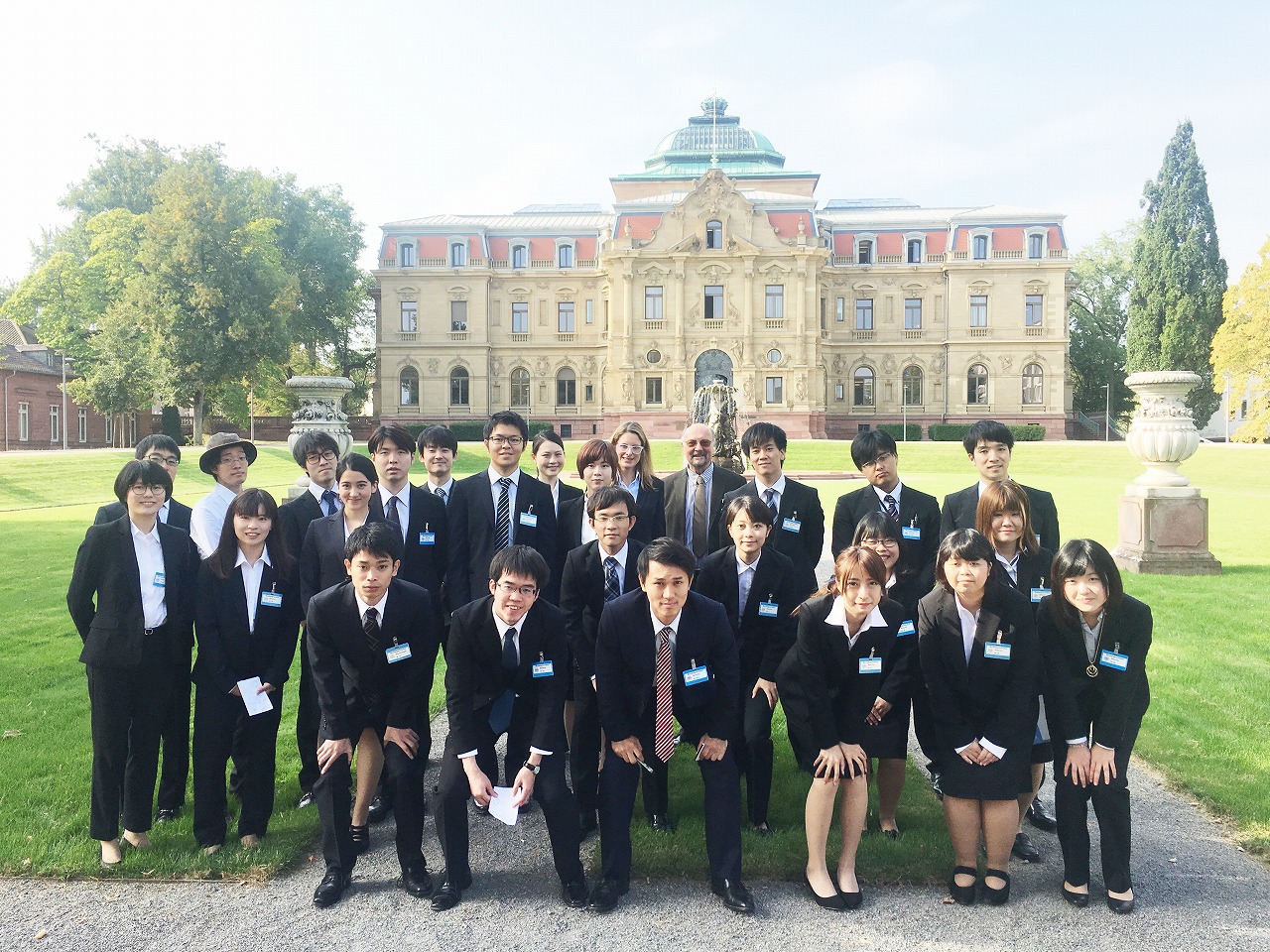
While in Germany, we also had the opportunity to visit many sites of cultural merit (UNESCO world heritage), including the Zollverein Coal mine Industrial complex, the Cologne Cathedral, the Augustusburg and Falkenlust Palace in Bruhl, and the Heidelberg Castle. It was a great opportunity to observe the architectural style of a country so vastly different from Japan, especially in the way the palaces were decorated. While in Japan decorations are more simple, palaces and cathedrals in Germany are decorated almost to excess, with colorful paintings, statues, and large gardens to show the power and might of God or the ruling monarchs.
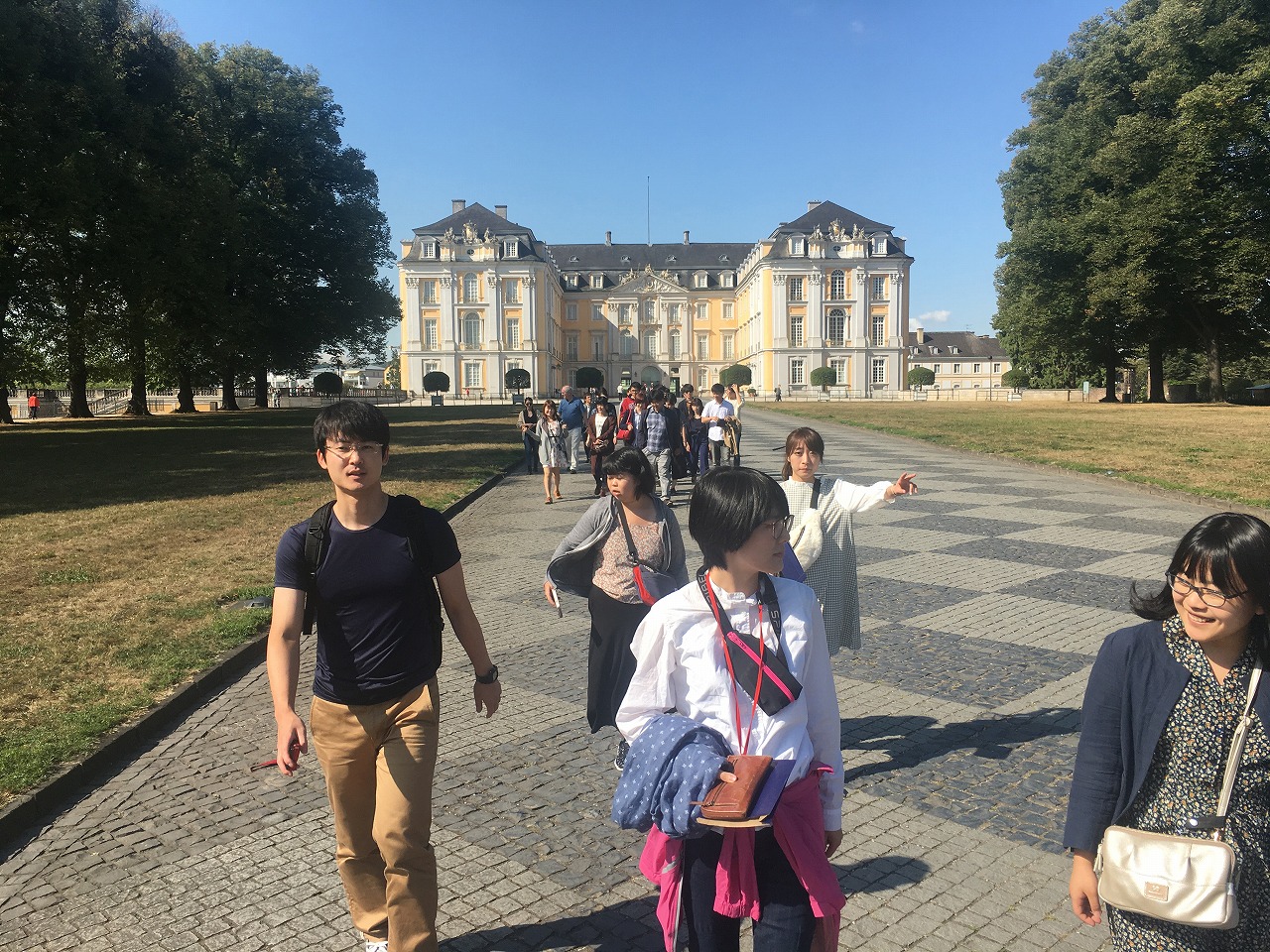
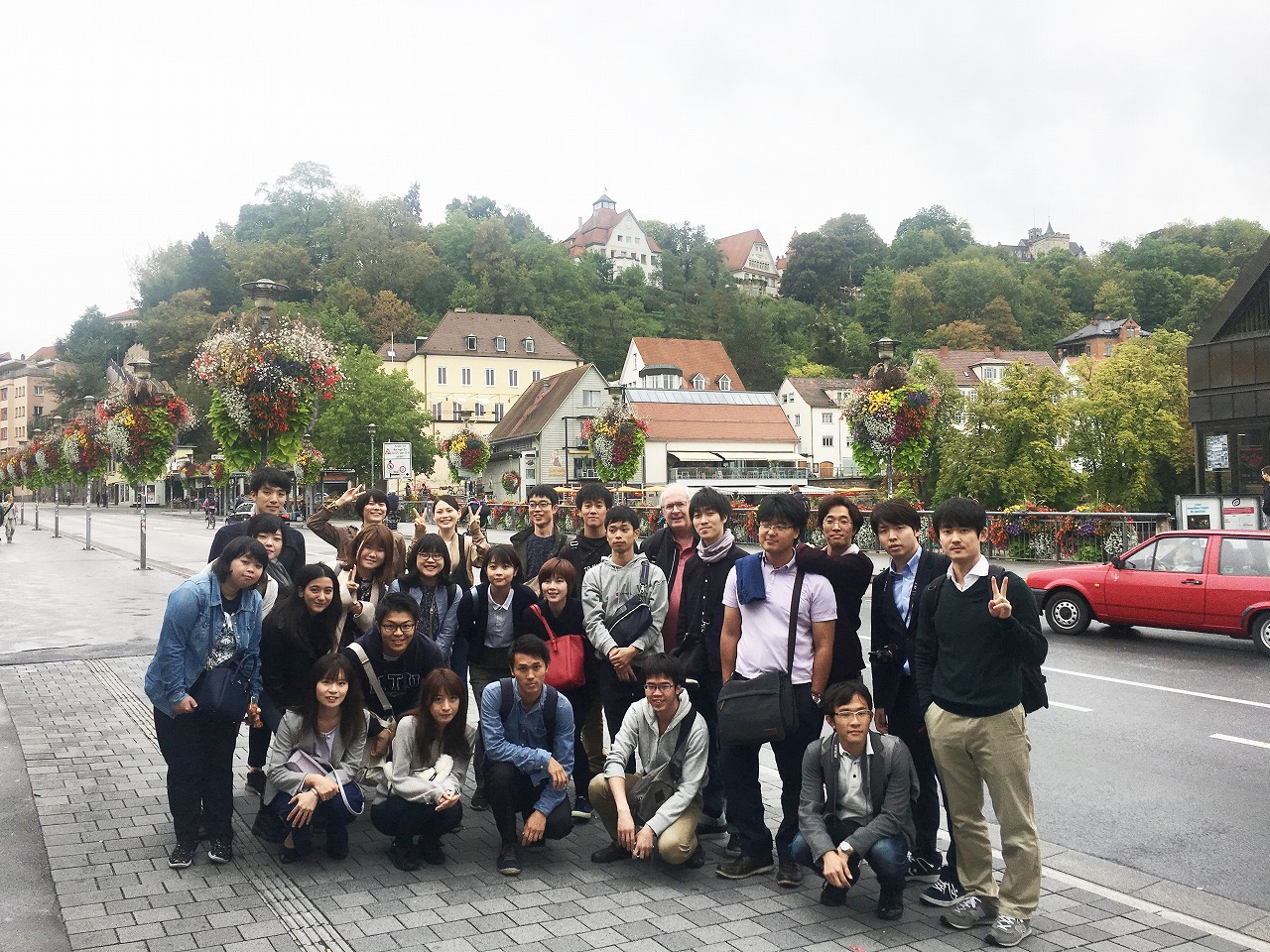
In Luxembourg, we visited the Court of Justice of the European Union (ECJ). This court reviews the legality of decisions and acts adopted by EU institutions, gives interpretation of EU law in a special procedure called “preliminary ruling”, which is initiated by local courts of member states, who deal with national law cases, where EU law is involved but the application unclear. The ECJ thus ensures the uniformity of application of EU law in all member states. Cases can be lodged in any of the 24 official languages of the EU, which makes the position of translators and interpreters vital. We had the opportunity to hear a lecture from a lawyer-linguist about her work in the ECJ. Nearly half of the staff members at the ECJ are lawyer-linguists, although not all have a legal background. Many speak multiple languages, and, as there are 24 official languages in the EU, making for 552 language combinations. It is also possible that there are several legal systems even in one country, which makes it important to be acquainted with many different judicial systems. As the nature of the documents in the ECJ are confidential and difficult, it is impossible to outsource the translations to freelance workers, which makes it important to have many lawyer-linguists on staff.
Rulings can also be made against non-EU countries, so long as they have a connection to the EU. For example, there have already been 8 rulings made by the ECJ involving Japan, particularly concerning anti-trust laws in which Japanese companies have been fined several million euros. Rulings have also been made against U.S. companies, which of course brings into question the issue of enforceability, especially against non-EU countries. The ECJ itself does not deal with enforceability. This is the task of the EU Commission. However, to date most companies have complied with court rulings, as ignoring these fines would bring damage to their business in EU countries. Also, as ECJ rulings are treated as national rulings in each EU nation, if a non-EU country has a treaty with a particular EU country concerning enforceability of rulings, that can be applied directly.
After Germany, we moved on to Strasbourg, where we visited the European Court of Human Rights (ECHR) and the Council of Europe (CoE), an international institution representing 47 countries in issues of human rights, democracy and the rule of law. The ECHR is the most powerful institution of the CoE to ensure the protection of human rights in the 47 member countries. Strasbourg is the location also of many EU and other European institutions, and it was interesting to learn something about the relationship between the EU and the CoE.
The ECHR has 47 judges, one from each CoE-member state; they are selected on a special procedure but do not represent the states’ interest in the court. The Grand Chamber, which deals only in especially important and leading cases, has 17 judges. The judges are selected per case at random, but always one judge is from the state, accused by an individual to have infringed its human rights. The legal formations below the Grand Chamber have 7, 3 or one judges, depending on fixed criteria for assignment.
800 million people fall under this court’s jurisdiction, as not only European civilians but also non-European civilians are viable to be heard by the court as long as they have a relationship to a CoE-member state. The ECHR is the last resort for the protection of human rights, and it is necessary for the applicant to have exhausted all judicial options in their own country before applying to this court.
The ECHR defends human rights, democracy, and the rule of law, and is not connected to the EU. One of the greatest accomplishments of this court was to establish a total ban on the death penalty, and it continues to lobby against the death penalty towards such countries as Japan and the U.S. Some cases that have been brought to the court, are rulings concerning Italy sending back refugees to their war-torn states, Turkey being complicit on torture performed by the CIA, and against the UK with civilian deaths in Iraq. The court also ruled that workers at Chernobyl must be paid compensation for health issues by the Russian government, and that it is not illegal for the French government to give permission to take a vegetative patient off life support. The ECHR bases these rulings on the European Convention of Human Rights.
Currently, there are 54,000 cases pending for review, with applications from Romania, Russia, Ukraine, and Turkey being the majority. There is no direct way to enforce these rulings, but the fact of the ruling itself has major power because the authority of the ECHR is widely recognized and the administrative body of the CoE, the Council of Ministers, has political means to look after implementation of the rulings.
One of the main different points of the Council of Europe vs EU is that it is international, in the sense that member states maintain sovereignty, unlike the EU, which is supranational, which means, that EU-member states have transferred part of their sovereignty, especially in legislation, to the EU. This explains the vast and important influence and impact of EU law on the EU member states. We could learn about this during our visit to the EU parliament, which is located direct opposite to the CoE and ECHR buildings. The EU parliament has in fact two locations, one in Brussels as a kind of “headquarter”, and one in Strasbourg, where once a month the plenary session with all 751 MPs, a lot of discussions and legislatory work take place for one week.
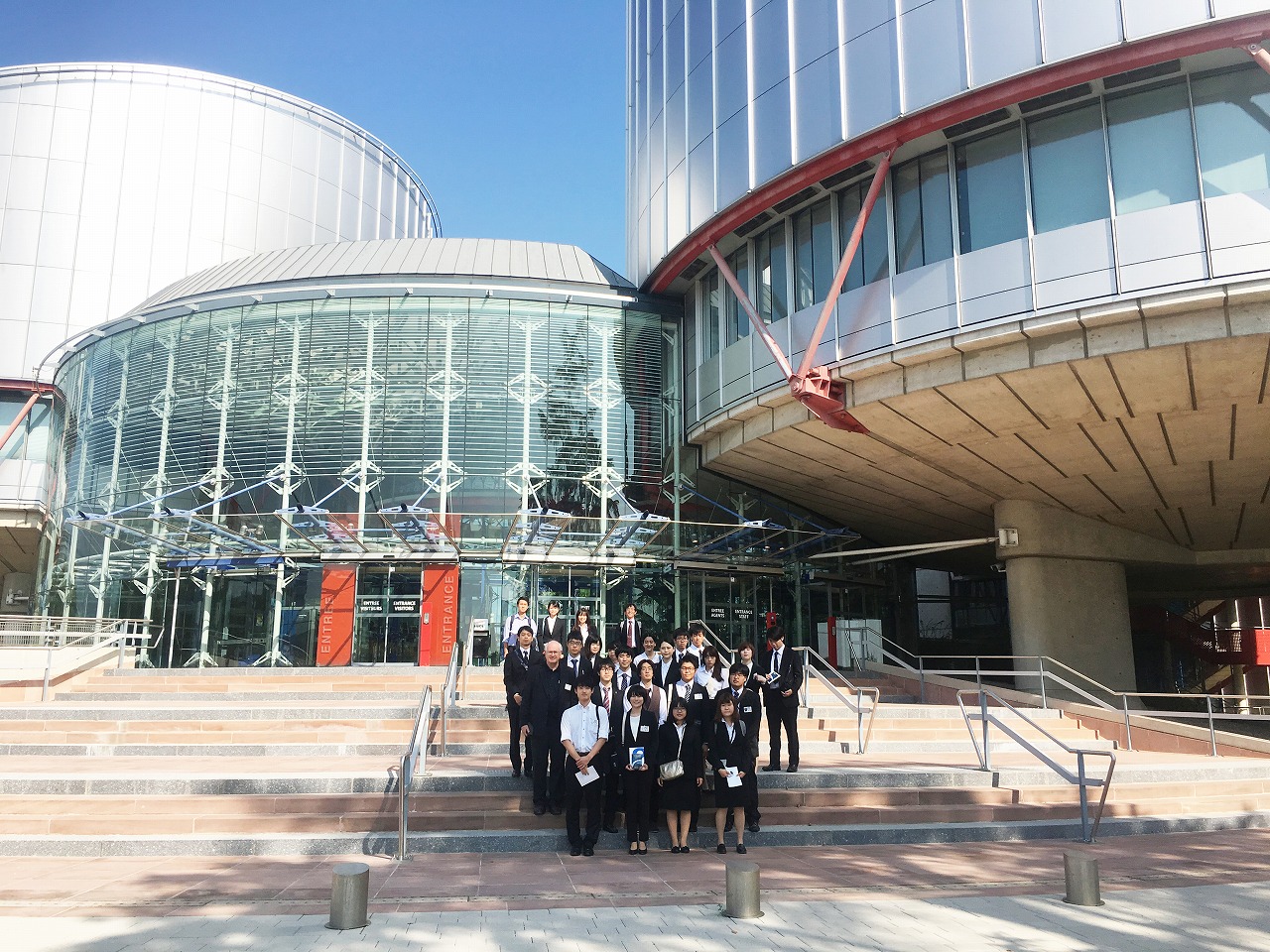
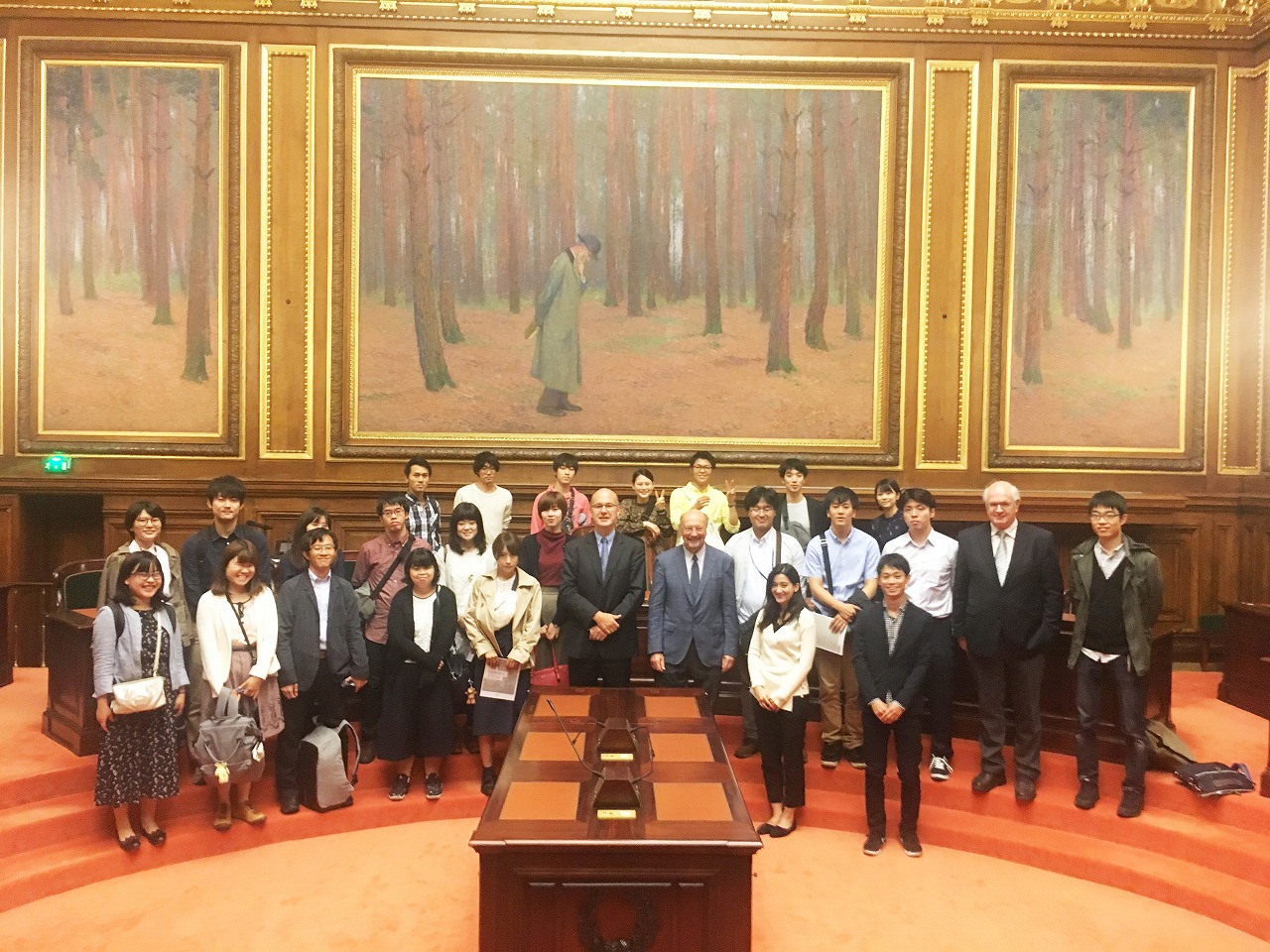
In Paris, we visited the Conseil d’Etat and the Palais de Justice with the Cour de Cassation.
There are two supreme courts in France, one normal for civil, criminal, and commercial matters as well as labour issues, and one administrative. The administrative supreme court (the Conseil d’Etat) is particular to France, and based on the philosophy of Montesquieu. It plays an important role as the government’s advisor in preparing draft legislation, ordinances, and certain decrees. It also handles demands from the government for advice on aspects of the law, and, if asked, carries out surveys and studies on administrative matters or questions relating to public policy.
The Conseil d’Etat thus has a dual function, both jurisdictional and consultative, ensuring that French public administration remains in line with the law. We receive a deep and good structured insight in the work of the Conseil by Mr. Gounin, member of the Conseil and in charge of international relations.

In Paris, we were allowed a full day of free time, which was wonderful as we were able to explore the city of Paris at our leisure. I was able to visit the Louvre and the Palace of Versailles as well as the Eiffel Tower, Arc de Triumph, and many other tourist hot spots. Since we only had about a day and a half of free time, I was quite busy moving from location to location, but I was able to visit many of the places I had hoped to, and wish to go back in the future to revisit some of my favorite spots. Also, Prof. Marutschke had arranged for some of us to be able to go to the Palais Garnier to view the ballet, performed by the Martha Graham Dance Company, or to hear a concert at the new Philharmonie de Paris.
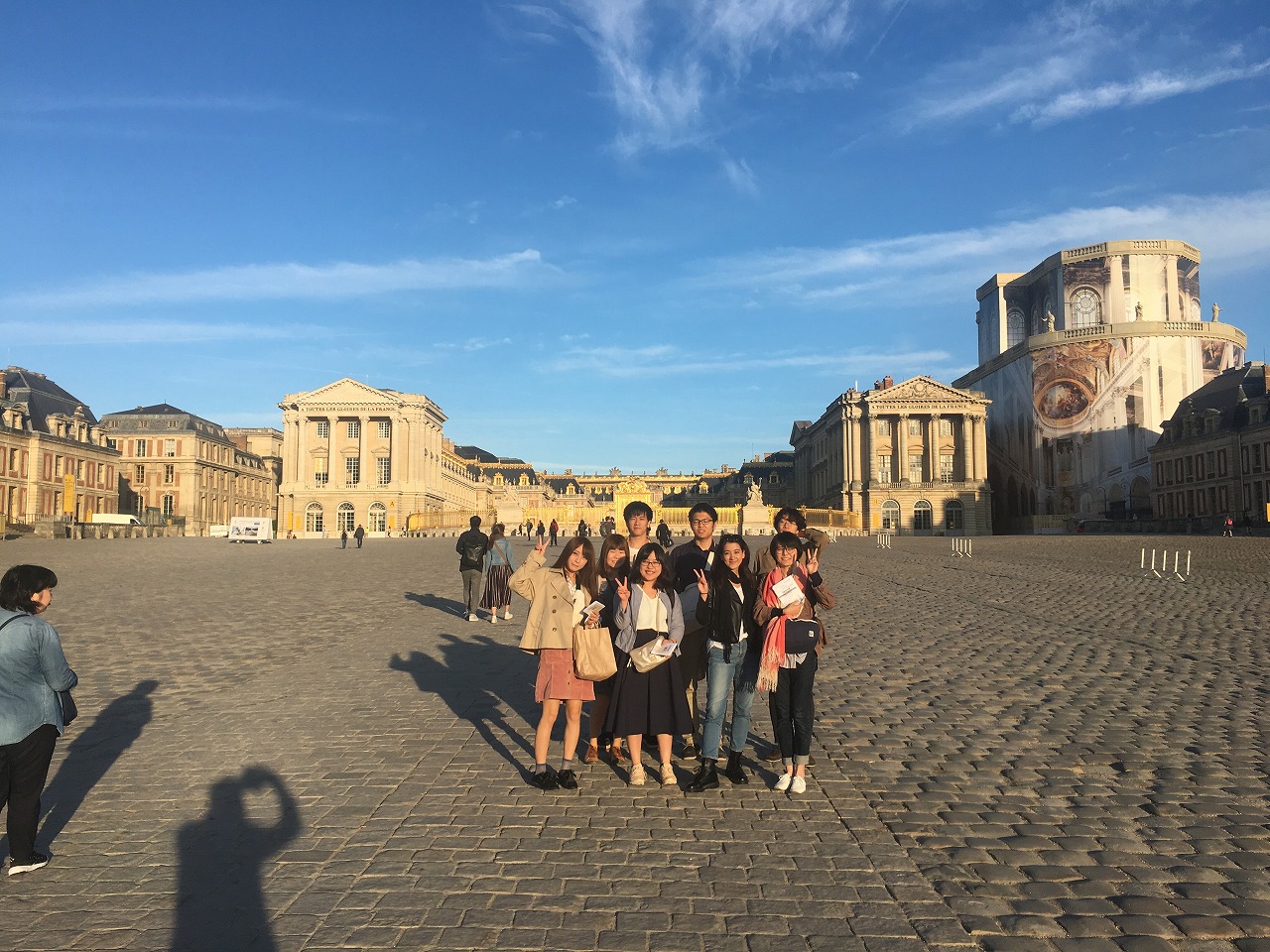
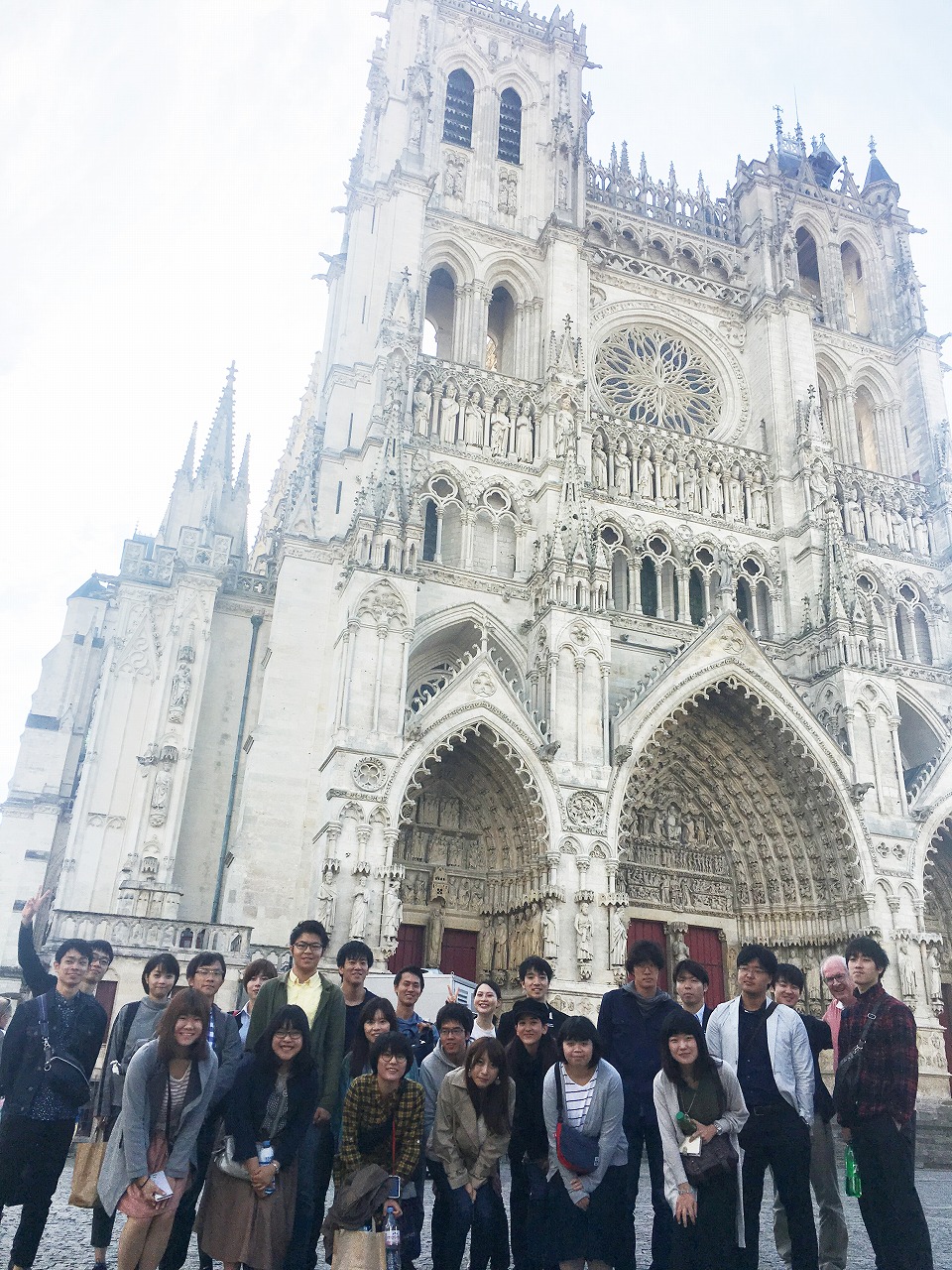
After Paris, we went to Brussels (via Amiens with its famous cathedral, UNESCO world heritage site), where we stayed only a short walk from the Grand Place, also a world heritage site, where they were holding a beer festival. We were able to enjoy some of the local cuisine and shop for chocolates and snacks.
In Brussels, we visited the EU Commission, where we were introduced in a special lecture to the principles of EU law – subsidiarity, proportionality, the precautionary principle, and the evidence-based policy. The lecture was given by a British national, giving the opportunity to also talk about the impact of Brexit on the EU in general and on individuals, working like her on the continent.
After the lecture we had the opportunity to learn about EU history on the “House of European History”, established close and by the EU parliament. In order to make history understandable for a broad audience and various ages the House has chosen a didactic concept, explaining the hard way Europe had to undertake to establish the EU, which finally received the Nobel Peace prize in 2012.
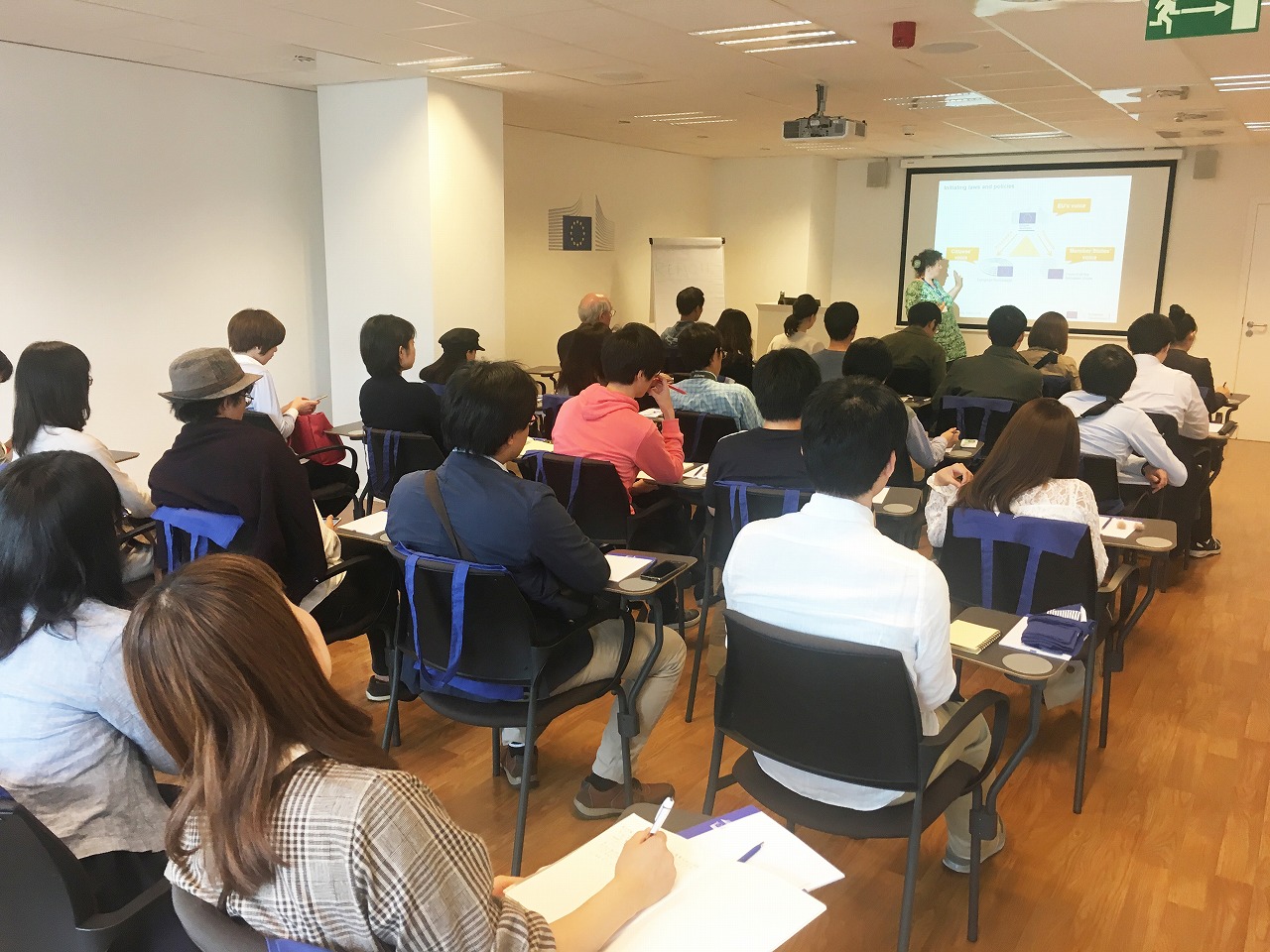
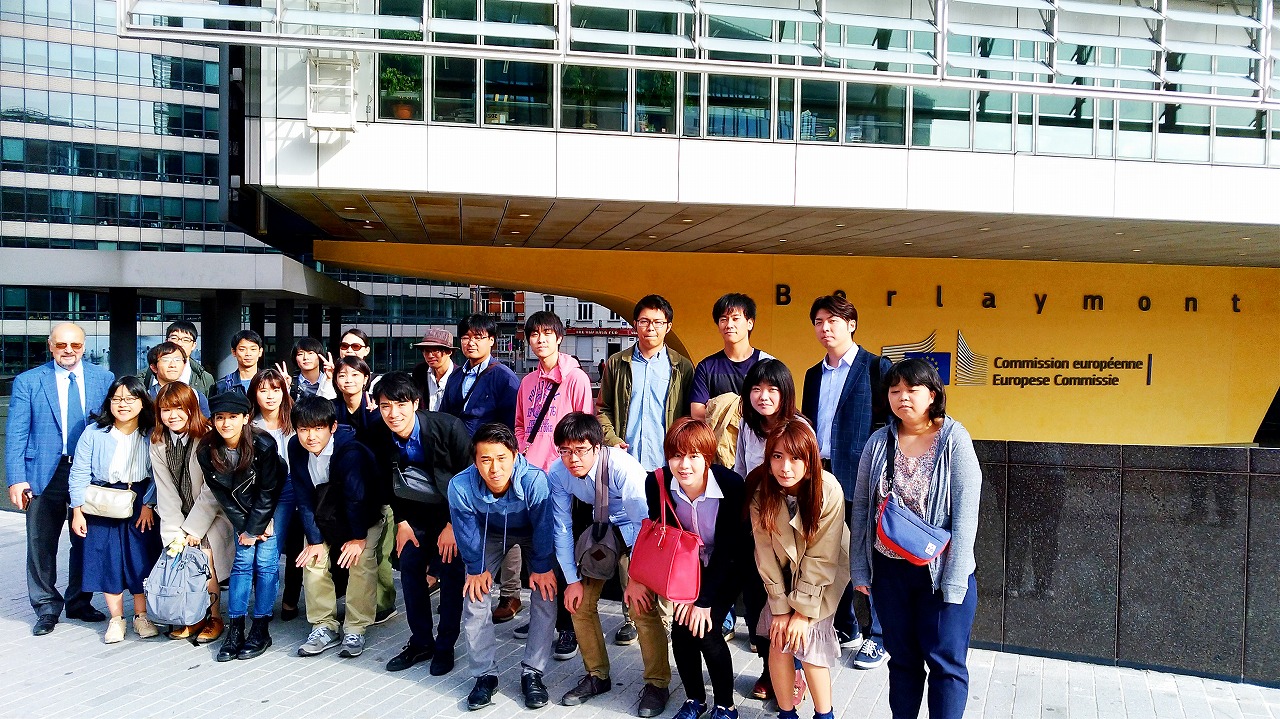
From Brussels, we took the Eurostar to London, where we also had quite a bit of free time after school functions, allowing us time to explore, shop, and rest. Some enjoyed watching musicals, like Les Miserables at Queen’s Theatre in Westend, the oldest-running musical in the U.K., or visited the National Museum, Chinatown, Picadilly Square, and 221 Baker Street.
In London, we visited the Royal Courts of Justice, where we were able to view a criminal case up for review. It was interesting to see, how different the court system was in the U.K. as compared to Germany. The three judges (two male, one female) sat on an elevated seat wearing wigs, looking down on the barristers and us public viewers, in a small traditional chamber. The barristers wear also wigs and robes, and the proceedings seemed much more formal. The defendant attended through video-conference, which is a big difference from Japanese courts, where this is generally not allowed.
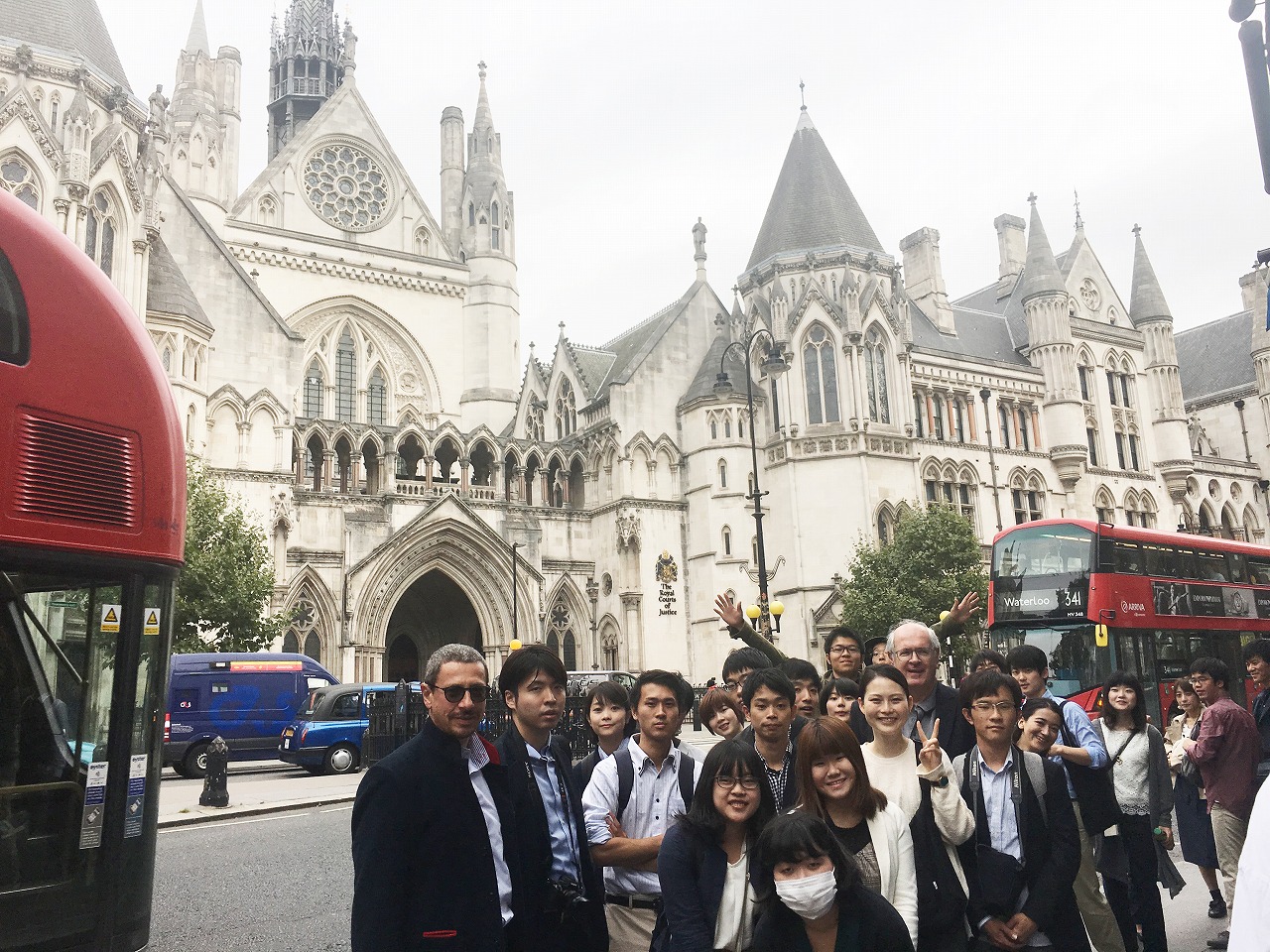
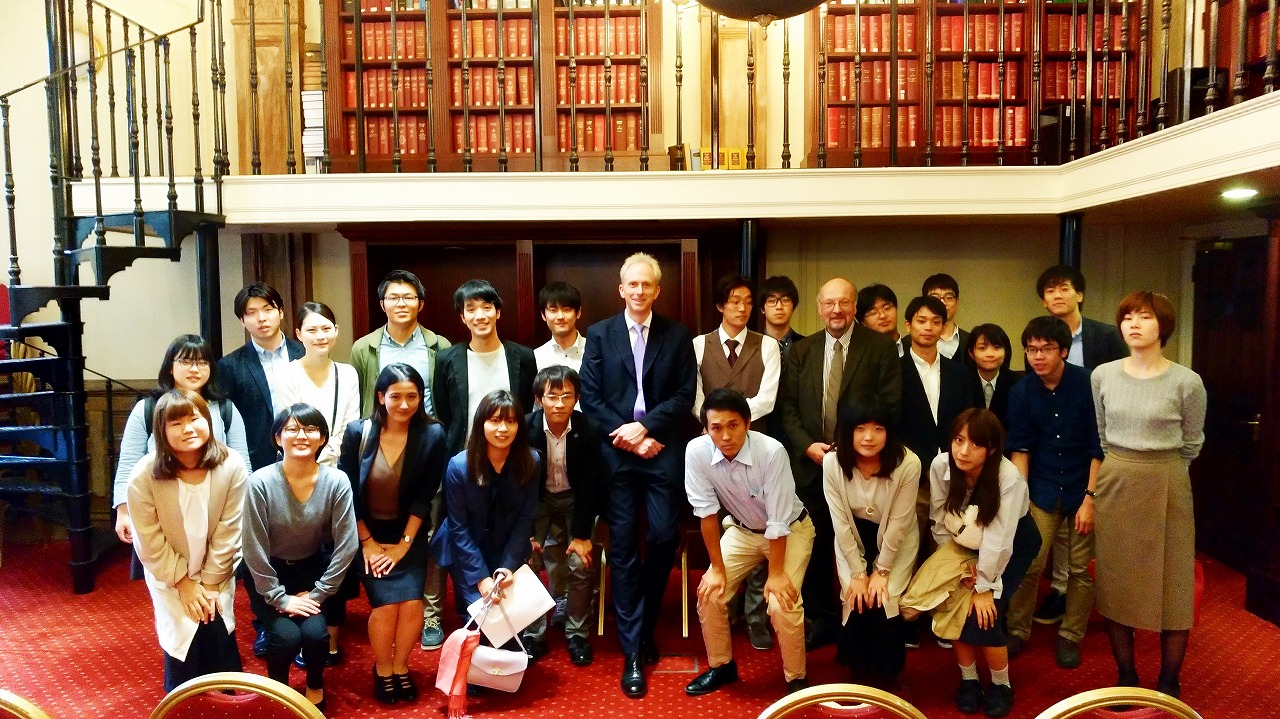
Afterwards we went to the Supreme Court of the UK, which is the final court of appeal in the UK for civil cases, and for criminal cases from England, Wales and Northern Ireland. It hears cases of the greatest public or constitutional importance affecting the whole population. In October 2009, The Supreme Court replaced the Appellate Committee of the House of Lords as the highest court in the United Kingdom. It sits now in the former Middlesex Guildhall. This new location should symbolize the UK’s separation of powers, balancing judiciary and legislature (located at Westminster Palace on the opposite side), with the executive (located in the Treasury building) and the church in Westminster Abbey.
There are 12 justices, but sitting normally in a formation of five. Interesting is the architecture of the court room, which does not show any hierarchy between court and parties, all are located on the same level, including public audience. Case hearings are also broadcasted realtime.
We then were also able to visit the offices of Taylor-Wessing in London, where we learned a bit more about EU law and Brexit. The EU aims for economic integration to create a single market, promoting human rights and developing common policies. The four freedoms of this single market are that of people, goods, services, and capital. EU legislation consists of treaties, regulations, directives, and more. Directives, which allow for a wide range of discretion upon application in each state, used to be the majority of EU legislation. However, as this resulted in quite varied legislature within the EU, directives are used less, or if they are, the range of discretion is lessened. Regulations are directly applicable, and one important example of regulations is the recent GDPR, which addresses data protection.
As the U.K. approaches its Brexit deadline (March 2019), it finds itself in more and more of a tight spot as there is so much division within the country. Whether or not the U.K. will follow through with Brexit at all is, in fact, also in question. As such, law firms such as Taylor-Wessing have a difficult time advising its clients concerning how U.K. law will be affected in the future. For the most part, not all companies have decided to relocate from the U.K., although some companies have been making preparations. Law firms are coming up with contingency plans for every possible scenario concerning Brexit, and advising their clients accordingly.
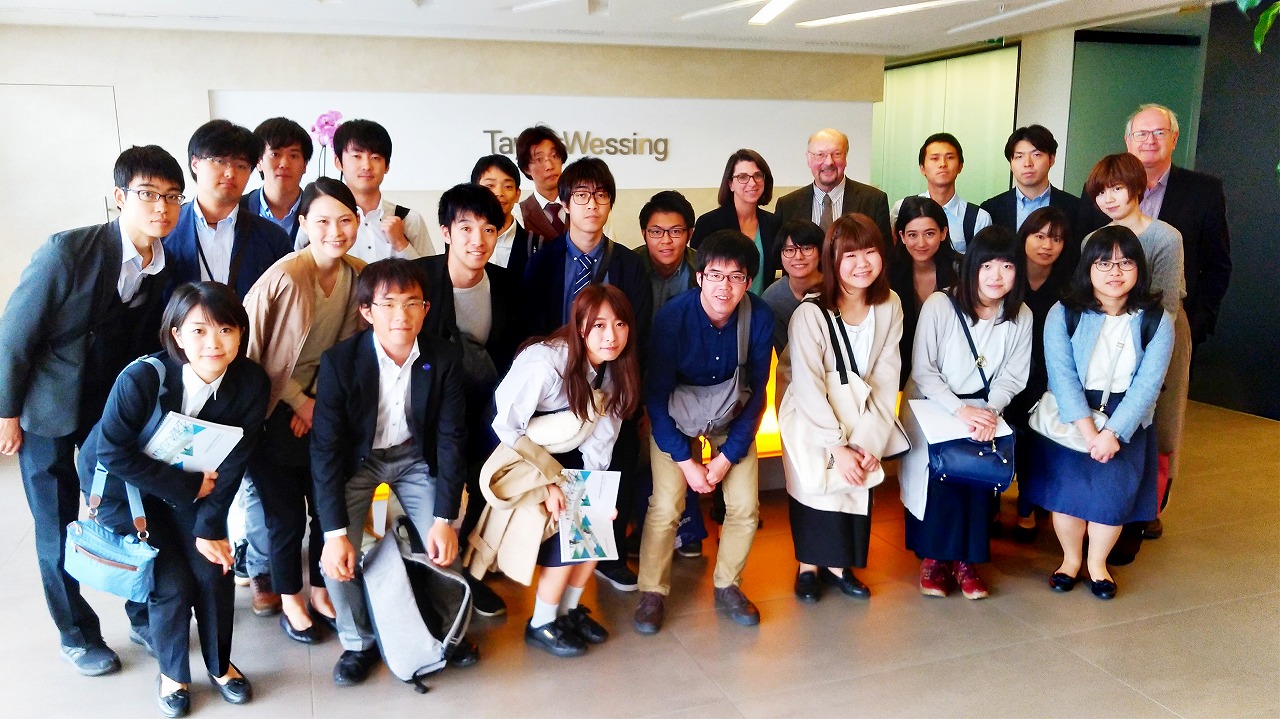
We also had the opportunity to visit the Inns of Court of the Inner Temple, where we learned about the difference between barristers and solicitors. Solicitors do most background work, drawing up contracts and doing more of the administrative duties. Barristers appear in court, making arguments and providing expert opinions. As such, a barrister’s training is very different from a solicitor, taking up more time and money. A barrister must join one of four Inns of Court, and after being called to the bar, most of them are self-employed in what are called Chambers. We visited the Quadrant Chambers of a barrister, where we learned more about the profession.
Although each Chamber houses many barristers, it is unlike a law firm in that each barrister is self-employed, and completely independent of each other. As such, colleagues in the same Chambers could even face each other in court on opposing sides. Barristers have the right to appear in all courts, but they are not allowed to receive instructions from lay people, and can only be given work from other lawyers, which makes their relationship with solicitors vital. Because of Anglo-Saxon tradition, unlike in Japan, there are not several hearings, but one single hearing which can last for up to a year. As such, barristers spend a lot of time preparing for hearings, since the oral argument is often the most important. We had the chance to hear more details about barristers’ work from a barrister specialized in maritime insurance law. He explained, that barristers are always self-employed, thus keeping their independence, and normally are working together with other barristers in a “Chamber”, which is a kind of law firm, but rental costs etc. are shared between the barristers. In his case the law firms name is “Quadrant Chambers”.

During this trip to Europe, we learned not only about the differences between Japanese and European judicial systems, but also about the vast differences between each country inside Europe, how each country has their own individual set of rules, traditions, and systems. I think that there are pros and cons to each system of justice, and while there are many commendable aspects of the Japanese judicial system, there is also much we can learn from European countries. It was also interesting to see how the judicial system reflects the history and politics of each state, and by examining the court systems we can also see what kind of social changes are being undergone in each state.
Although the educational aspect of this trip was quite interesting, it was also a great opportunity to travel, become acquainted with different cultures and meet new people. We had ample time to visit beautiful cultural landmarks, explore major cities such as Paris and London, and enjoy the cuisine of each country. The weather was also excellent with hardly any rain. Although the trip was long and tiring, it was also very rewarding, and I would recommend it to anyone interested in expanding their horizons.
